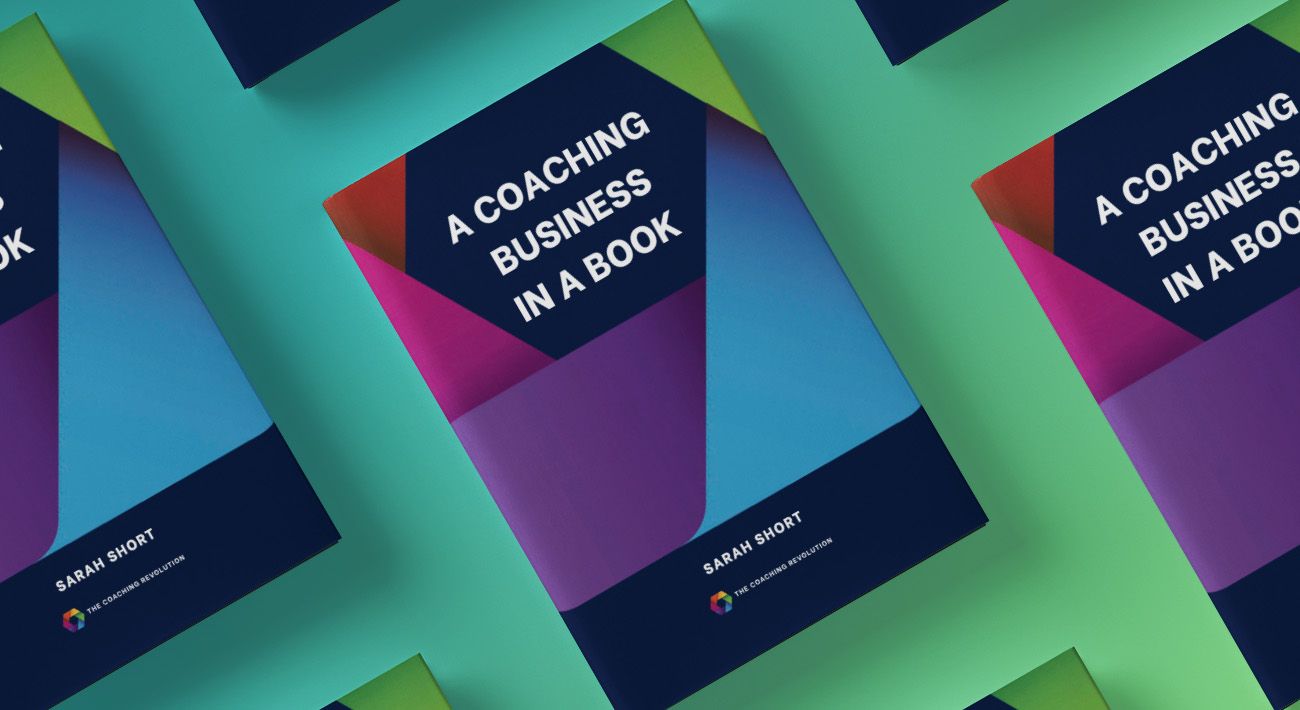A Coaching Business in a Book, by Sarah Short

“People don’t buy the coaching process; they buy the outcome. Show them you understand their problem, and they’ll see you as the solution.”
A Coaching Business in a Book is an empowering and practical manual that unpacks the often-intimidating world of marketing and sales for coaches. Sarah’s message is clear: good coaching alone won’t sustain your business. Marketing and client acquisition are indispensable skills, yet they can be approached authentically and ethically without compromising coaching values.
The book is structured around Sarah’s five essential pillars for coaching business success: clarity, client, credibility, communication, and consistency. She dismantles myths such as “If your coaching is good enough, clients will find you” and exposes the inefficiency of generic marketing tactics.
- Clarity
- Coaches must define their niche and ideal client. Sarah guides readers through the funnelling process to narrow a broad audience into a specific, financially viable group.
- Example: A coach targeting “women in business” refines their niche to “mothers running home-based businesses with an annual turnover of £100,000.”
- Client
- Creating an ICA is foundational. Sarah provides a detailed template, encouraging coaches to explore their ideal client’s demographics, behaviours, and core worries.
- Credibility
- Credibility with clients comes from demonstrating understanding and empathy, not showcasing qualifications. Clients seek solutions, not processes.
- Real-world tip: Replace “I’m a certified coach” with “I help new managers feel confident leading their teams.”
- Communication
- Marketing must address client problems and desired outcomes. Sarah’s “marketing message toolkit” offers a 10-step structure to create targeted and engaging content.
- Consistency
- Sarah emphasises the importance of consistent visibility. Whether through social media, networking events, or public speaking, coaches must meet clients where they are.
Marketing is a skill coaches can master
Sarah’s core premise is that marketing and sales are learnable skills - and crucial for a sustainable coaching practice. She demystifies marketing, positioning it as an empathetic process of understanding client problems and offering tailored solutions. The key highlights I found reading A Coaching Business in a Book are:
- The importance of niching: Coaches often fear that narrowing their focus limits their opportunities. Sarah dispels this misconception, explaining how a well-defined niche and ideal client avatar (ICA) amplify visibility and attract clients.
- Bilingual communication: Coaches must learn to speak in their clients’ language (client-speak) rather than in technical coaching jargon (coach-speak).
- The balanced business scale: Sarah illustrates how marketing and delivery skills form two sides of a scale - and without equal weight on marketing, the scale collapses.
- Practical frameworks: The book includes templates for defining an ICA, crafting marketing messages, and leveraging online and offline visibility strategies.
Key takeaways for coaches
- Strategies for coaching practice:
- Narrow your niche to stand out in a crowded market.
- Speak your client’s language; avoid jargon.
- Focus your marketing on outcomes, not the coaching process.
- Coaching frameworks:
- Use Sarah’s ICA and marketing message templates to build a client-centric approach.
- Apply the “3 a.m. worry” concept to craft content that addresses urgent client needs.
- Client transformation tools:
- Offer specific, actionable tips in your marketing to showcase your expertise.
- Demonstrate empathy by aligning your messaging with clients’ lived experiences.
Growth hacks
- Coaches’ development:
- Shift your mindset: Marketing is not “grubby” - it’s an extension of good customer service.
- Embrace imperfection; action trumps inaction in building visibility.
- Business building:
- Avoid costly mistakes like creating a website before defining your niche.
- Leverage accessible platforms like LinkedIn and Coaching Quest to connect with potential clients.
- Ethics and professionalism:
- Stay authentic and client-focused in your marketing efforts.
- Build credibility through empathy, not self-promotion.
Conclusion
Sarah Short’s A Coaching Business in a Book is an indispensable resource for any coach. Its step-by-step approach empowers coaches to overcome marketing fears and embrace client acquisition as an ethical, authentic practice. Whether you’re just starting or seeking to refine your approach, this book provides the clarity, tools, and confidence to succeed.
Related Coaches
Join our newsletter to stay inspired & informed
Sign up for our newsletter and receive the latest coach updates, coaching news, expert advice, and exclusive offers straight to your inbox. Stay motivated and keep learning.